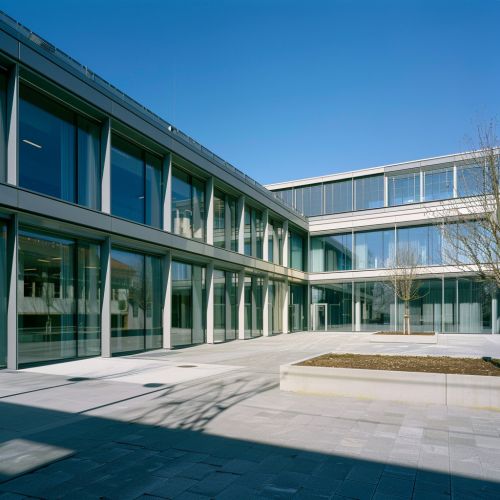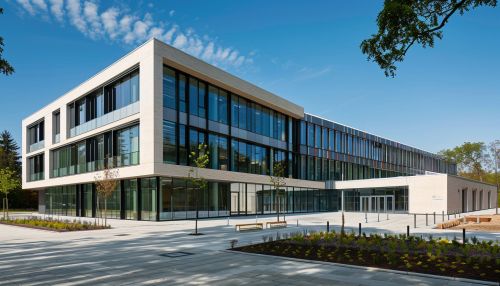International Centre for Theoretical Physics
Overview
The International Centre for Theoretical Physics (ICTP) is a research institute for physical and mathematical sciences that operates under a tripartite agreement between the Italian government, UNESCO, and IAEA. It is located in Trieste, Italy, and was founded in 1964 by Pakistani physicist Abdus Salam.


The ICTP's mission is to foster the growth of advanced studies and research in physical and mathematical sciences, especially in support of excellence in developing countries. It does this through a comprehensive programme of research training, education, and scientific collaboration.
History
The International Centre for Theoretical Physics was established in 1964 by Abdus Salam, who was inspired by the lack of resources for scientists in developing countries. Salam, a theoretical physicist from Pakistan and a future Nobel laureate, envisioned a centre that would not only be a hub for scientific research but also a place where scientists from developing countries could access resources, collaborate with others, and further their own research.
The Italian government, UNESCO, and the IAEA agreed to jointly sponsor the centre, and Trieste was chosen as the location due to its historical role as a crossroads of different cultures. Since its establishment, the ICTP has grown significantly and now hosts thousands of scientists each year for conferences, workshops, and training programmes.
Research and Education
The ICTP conducts research in a wide range of fields in the physical and mathematical sciences. The centre's research divisions include High Energy, Cosmology and Astroparticle Physics (HECAP); Condensed Matter and Statistical Physics (CMSP); Mathematics; Earth System Physics (ESP); and Quantitative Life Sciences (QLS).
The centre also offers several educational programmes, including postgraduate diploma programmes, PhD programmes, and a variety of short courses and workshops. These programmes are designed to provide young scientists from developing countries with the skills and knowledge they need to contribute to their home countries' scientific development.
The ICTP also operates the Abdus Salam ICTP Prize, which is awarded annually to a researcher from a developing country who has made significant contributions to the field of theoretical physics.
Scientific Collaboration
One of the key functions of the ICTP is to foster scientific collaboration. The centre hosts a variety of scientific meetings, including conferences, workshops, and seminars, which bring together scientists from around the world to discuss their research and collaborate on new projects.
The ICTP also operates several partnership programmes, which aim to build scientific capacity in developing countries. These include the ICTP Affiliated Centres programme, which provides support to research institutions in developing countries, and the ICTP-CERN Agreement, which facilitates collaboration between ICTP scientists and researchers at CERN.
Impact
The ICTP has had a significant impact on the global scientific community. Since its establishment, the centre has hosted more than 150,000 visits by scientists from around the world, many of whom have gone on to make significant contributions to their fields.
The centre's educational programmes have also had a significant impact. Many ICTP alumni have gone on to hold prominent positions in academia and government in their home countries, contributing to the development of scientific capacity in these regions.
